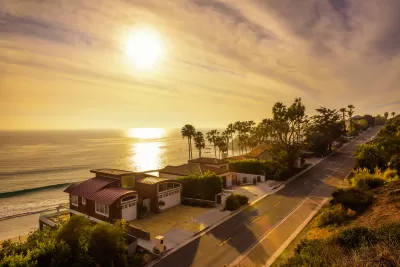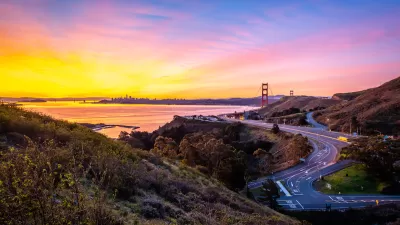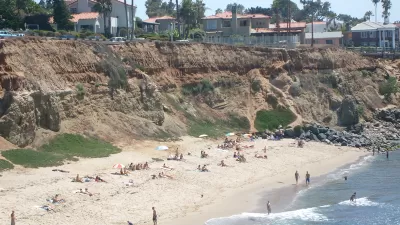As sea levels rise, experts say coastal communities have to overcome their resistance to managed retreat and plan for relocation.

In a Smart Cities Dive brief, Ysabelle Kempe outlines the findings of a report from the Ocean & Climate Platform that warns West Coast communities to prepare for managed retreat, a “long-term transformative option” for mitigating sea level rise that many cities have been reluctant to consider.
The practice of relocating people and infrastructure remains contentious and has led to political conflict, notably over potential tax revenue loss for cities, the report says. It adds that communities are still primarily preventing coastal erosion with physical “armoring” such as seawalls, but there is a growing interest in nature-based solutions such as restoration of oyster reefs and wetlands.
The report “calls for a reframing of the debate around managed retreat” that would “rethink the intersection of built and natural spaces” in a way that is “anticipated, consented to and integrated in phased and flexible manners” for the community. The report names as examples the relocation of several segments of California state highway that secured the roadway and enabled shoreline restoration.
The report urges communities to begin planning as soon as possible to avoid higher costs in the future, but acknowledges that much of California coastal real estate “simply remains too financialized, and properties retain too much economic value” to easily relocate.
FULL STORY: As sea levels rise, it’s time for West Coast communities to overcome ‘taboo of managed retreat’: report

Maui's Vacation Rental Debate Turns Ugly
Verbal attacks, misinformation campaigns and fistfights plague a high-stakes debate to convert thousands of vacation rentals into long-term housing.

Planetizen Federal Action Tracker
A weekly monitor of how Trump’s orders and actions are impacting planners and planning in America.

In Urban Planning, AI Prompting Could be the New Design Thinking
Creativity has long been key to great urban design. What if we see AI as our new creative partner?

King County Supportive Housing Program Offers Hope for Unhoused Residents
The county is taking a ‘Housing First’ approach that prioritizes getting people into housing, then offering wraparound supportive services.

Researchers Use AI to Get Clearer Picture of US Housing
Analysts are using artificial intelligence to supercharge their research by allowing them to comb through data faster. Though these AI tools can be error prone, they save time and housing researchers are optimistic about the future.

Making Shared Micromobility More Inclusive
Cities and shared mobility system operators can do more to include people with disabilities in planning and operations, per a new report.
Urban Design for Planners 1: Software Tools
This six-course series explores essential urban design concepts using open source software and equips planners with the tools they need to participate fully in the urban design process.
Planning for Universal Design
Learn the tools for implementing Universal Design in planning regulations.
planning NEXT
Appalachian Highlands Housing Partners
Mpact (founded as Rail~Volution)
City of Camden Redevelopment Agency
City of Astoria
City of Portland
City of Laramie




























